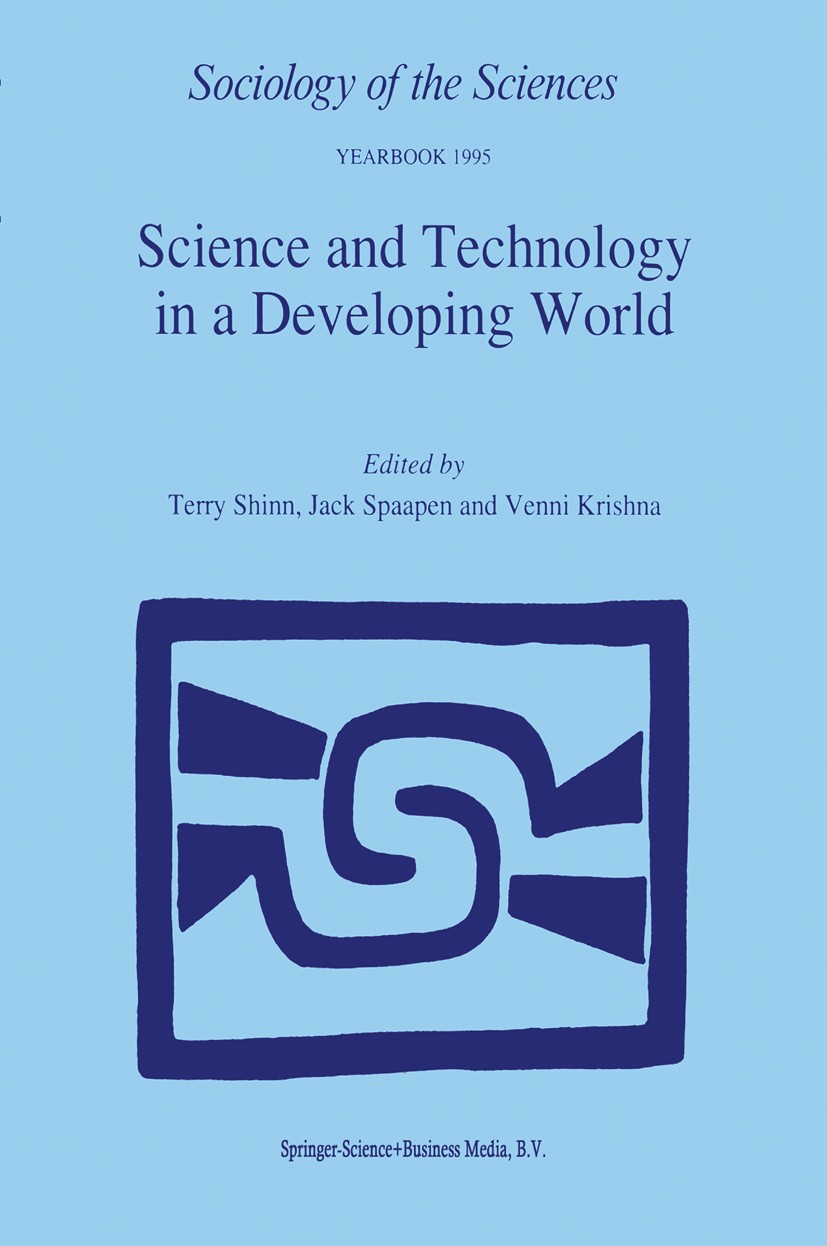| 书目名称 | Science and Technology in a Developing World |
| 编辑 | Terry Shinn,Jack Spaapen,Venni Krishna |
| 视频video | http://file.papertrans.cn/863/862539/862539.mp4 |
| 丛书名称 | Sociology of the Sciences Yearbook |
| 图书封面 |  |
| 描述 | block possible Soviet expansion by mobilizing European "democracies", the policy soon extended to some developing countries in Asia and Latin America. In response, the USSR gradually initiated development programs for newly independent nations in Asia and Africa. In this context, super power rivalry operated in the South to (i) expand spheres of influence and control; (ii) guard Southern nations from the influence and incursions launched by the opposed camp; (iii) stimulate indigenous development. With few exceptions, Southern nations provided little input to the definition and execution of North-South dynamics during this period. In the case of Africa and to some extent Asia, the acquisition of independence was so recent and often sudden that there was little time to reflect on the kind of policies and measures needed to build bal anced relations with the former mother country. In Latin America, the Monroe Doctrine had long insured that the region was a virtual captive of the US. Aid for development was contingent on conformity to US political and economic interests. The cognitive component of South-North dealings strongly reflected the two above mentioned dispositions. The relat |
| 出版日期 | Book 1997 |
| 关键词 | Nation; information; interaction; research; science; technology; time |
| 版次 | 1 |
| doi | https://doi.org/10.1007/978-94-017-2948-2 |
| isbn_softcover | 978-90-481-4799-1 |
| isbn_ebook | 978-94-017-2948-2Series ISSN 0167-2320 Series E-ISSN 2215-1796 |
| issn_series | 0167-2320 |
| copyright | Springer Science+Business Media Dordrecht 1997 |
 |Archiver|手机版|小黑屋|
派博传思国际
( 京公网安备110108008328)
GMT+8, 2025-12-17 19:36
|Archiver|手机版|小黑屋|
派博传思国际
( 京公网安备110108008328)
GMT+8, 2025-12-17 19:36


